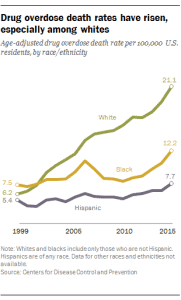
Alcohol Addiction – Costa Rica Treatment Center – International Rehab
Alcohol use disorders (AUD) such as alcoholism, alcohol abuse or alcohol addiction impact an estimated 7 percent of the U.S. population. Adults may drink too much after a long day at work, or at a party, or just as a means of coping with everyday stressors. Unfortunately, drinking excessively can harm relationships, interrupt the happiness of the individual, and otherwise impact the lives of everyone involved.
While estimates describe 7 percent as suffering from some kind of alcohol use disorder, many more partake in active consumption of alcoholic beverages such as beer, wine or spirits/liquor during happy hour or various other times of day. Studies estimate that as many as half of all American adults drink alcohol on a regular basis but do not quite meet the description of suffering from alcohol addiction or alcoholism.
But what makes one individual able to drink occasionally without worry, while someone else struggles deeply with a nagging urge to continue drinking despite negative consequences? What makes some adults fall into the category of suffering from an alcohol use disorder while others simply “have a few drinks after work?”
When alcohol becomes an obsession for the user, interfering with daily routines and happiness, the disorder may require further treatment in an alcohol rehab program or treatment center that specializes in treating alcohol use disorders. Costa Rica Treatment Center can help you or your loved one overcome alcoholism—call our center to speak with a professional at 1-888-981-9092 for help.
The dangers of alcohol abuse
According to the National Institute on Alcohol Abuse and Alcoholism, drinking too much, either on occasion or over an extended period of time, can lead to a number of serious consequences. The toll that regular alcohol consumption takes on the body is great. Dangers of alcohol abuse include:
- Disruptions with communication pathways within the brain which can lead to changes in mood and behavior as well as poor coordination.
- Liver or kidney damage.
- Heart damage including arrhythmias or cardiomyopathy.
- Stroke or high blood pressure.
- Cancer of the pancreas, liver, or other areas of the body such as the esophagus.
- Weakened immune system response which can lead to greater risk of pneumonia or other serious health effects.

How Much Alcohol is Too Much?
You may believe that you have to drink every single day in order to have a drinking problem. Or that you have to consume huge amounts of alcohol (binge drink) to be considered risky. But did you know that consuming 4 drinks over a two-hour period as a women is considered a binge? Or that drinking 5 drinks over a two-hour period as a mean is considered a binge?
Other signs that you are drinking too much and putting yourself at great risk for harm include:
Drinking on a daily basis – no matter how many drinks you have, if you drink daily, you are drinking too much!
Drinking a large amount of alcohol in social situations to feel comfortable—any drinking for comfort is discouraged.
Blacking out after you consume alcohol – if you can’t remember what happened, you certainly drank too much.
Unfortunately, alcohol use disorders, including alcohol addiction, can creep up on you. A few drinks turns into a few more. A few nights after work at the bar, turn into a daily trip. Before you even realize it, the drinking has already spiraled out of control in many cases. Should you find yourself in this kind of position, it’s important to seek help right away.
Risks of Prenatal Alcohol Abuse
The National Institute on Alcohol Abuse & Alcoholism has defined a number of risks associated with exposure to alcohol within the womb. Pregnant women, and nursing women, should not consume alcoholic beverages. Drinking during pregnancy contributes to a wide range of adverse effects to the unborn children that are exposed to the alcohol. The following risks are possible:
Fetal Alcohol Syndrome – a condition that includes facial anomalies such as short eyelid openings, a flat midface, and a flat or smooth groove between the nose and upper lip exhibited in children who’s mothers drink heavily during pregnancy. Many babies that are born with Fetal Alcohol Syndrome are mentally retarded with an IQ of less than 70.
Hyperactivity and Attention Disorders – although hyperactivity is one of the least severe reactions to an infant being subjected to alcohol exposure, many babies who’s mothers drank alcohol during pregnancy later suffer from difficulty focusing, sustaining attention, or shifting from one task to another.
Learning and Memory Troubles – babies that are subjected to alcohol consumption by the mother are more likely to struggle to memorize words or to retain information that they learn. We also see this loss in cognitive function in adults that drink excessively.
The Difference – Alcohol Abuse, Alcohol Addiction & Alcoholism
Although some choose to use the terms alcohol addiction and alcoholism interchangeably, there are distinct differences between alcohol abuse, alcohol addiction and alcoholism. Below we outline how you can tell what stage you are in and what you should do about it:
Alcohol abuse – alcohol abuse encompasses the harmful behaviors and habits that you may take part in as a result of your drinking such as binge drinking, drinking and driving, or avoiding personal responsibilities while under the influence. However, abusing alcohol does not necessarily mean you are addicted.
Alcohol Addiction – addiction is the fine line between alcohol abuse, and an actual dependence on alcohol to get through each day. Alcohol addiction is seen when you continue to drink despite growing negative consequences related to your actions. For instance, you drink even though you know that drinking causes problems with your spouse, or you drink and drive even though you have already been in trouble with the law and received a DUI.
Alcoholism – the worst case of alcohol addiction is alcoholism. When you are physically dependent on alcohol, and cannot stop drinking without suffering from serious symptoms of withdrawal, you are in a state of full-blown alcoholism. Quitting now is not only vital, but also dangerous without proper treatment.
Signs of Alcohol Abuse
If you or someone you love has a drinking problem, alcohol addiction may already be present. Spotting the signs of alcohol addiction early on can help you to determine whether alcohol rehab is the right choice for your recovery. Below we outline some of the common signs of alcohol abuse and how they differ from full-blown alcohol addiction.

Drinking alone or during times when it may be inappropriate to drink. You may suffer from alcohol addiction if you can’t bring yourself to quit drinking during inappropriate times.
Struggling to stay productive or on time at work or with school projects. If you are failing at work or at school and you continue to drink despite the failure, you may be struggling with addiction.
Drinking despite legal or social consequences that have occurred. If you know that you will be in trouble as a result of your drinking, but you choose to drink anyway, you are abusing alcohol. Likewise, if you WANT to quit but can’t find the strength to do so, you may be dependent.
Individuals who abuse alcohol may:
Experience financial stress as a result of alcohol use.
Spend the majority of their time drinking instead of focusing on other activities or behaviors.
Struggle to control their alcohol intake. Drinking more drinks than planned or drinking more frequently than planned.
Make up excuses to drink. Drink for fun. Drink for stress. Drink to celebrate. Drink to relieve sorrows—there’s always a reason to drink.
Signs of Alcoholism
A troublesome, compulsion to drink despite all of the negativity that has occurred in your life as a result of the alcohol, signifies alcoholism. You get that feeling that you can’t quit even if you REALLY did want to. Signs of alcoholism include:
Increased tolerance to alcohol requiring you to drink excessively just to feel any effects.
Symptoms of alcohol withdrawal such as nausea, vomiting or shaking when you don’t drink.
Loss of control over the amount of alcohol you consume. You may tell yourself you are going to cut back, but despite your efforts to do so, you consistently seem to drink more, not less.
You focus on alcohol. You plan your schedule around having a drink. You plan activities around being able to drink. The world seems to revolve around your alcoholism.
Continued drinking despite problems with the law, family, friends, work or other areas of your life such as your health.
Although the characteristics of alcoholism are much the same, one alcoholic is not necessarily the same as the next. For instance, the National Institutes of Health defines the following types of alcoholics:
Young Adult Alcoholics – young adults with no prior family history of alcoholism or co-occurring mental illness.
Young Antisocial Alcoholics – young adults that have a family history of alcoholism and have a co-occurring mental illness or addiction to other substances.
Functional Alcoholics- middle aged adults that drink excessively while maintaining a stable job and supporting family. They have a family history of alcoholism and many suffer from depression.
Intermediate Familial Alcoholics – middle aged adults with a family history of alcoholism and depression.
Chronic Severe Alcoholics – middle aged adults with family history of alcoholism and mental illness, as well as addiction to other substances.
Causes of Alcohol Addiction
No one grows up saying, “I want to be an alcoholic when I grow up.” So what is it that causes alcohol addiction to sneak into the lives of some unsuspecting drinkers and not others? While the exact cause of alcohol addiction is not known and may vary from one person to the next, we believe that alcoholism begins with the first drink—so there is one surefire way to prevent it—don’t drink!
Alcohol addiction may be caused by:
Peer pressure. Those prompted by their peers to drink may not even initially enjoy drinking. Somehow, over time, they lose control over their ability to say no and they begin to drink more frequently and excessively.
Mental Illness. Those prompted to drink as a result of anxiety, stress, depression or some other mental illness may not realize they are suffering from an illness. All they realize is that the drinking “helps.” However, alcohol as a DIY cure for mental illness is most certain to lead to dire consequences.
Genetic factors. Although there is no specific “Alcoholism Gene” defined, researchers do believe that genetics play a key role in whether or not people who drink become addicted. People who have a family history of alcoholism are at greater risk for alcohol addiction than those with no prior history. It’s as if the body is primed to develop an addiction.
Environmental factors. Family situations, the way children are raised, may be inadvertently responsible for addiction later on. Drinking around children, or making alcohol consumption seem “normal” could lead to serious addiction struggles for that child later in life.
Recognizing the Need for Alcohol Addiction Treatment
Once you recognize the signs of alcohol addiction, you can begin to better understand the need for treatment. A key symptom of alcoholism that you should be on the lookout for is the inability to change drinking habits if you make a commitment to yourself or to others to do so. Alcoholics that do not change behaviors when they commit to doing so are at an increased risk for depression and anxiety because they may generally WANT to do better but believe that it’s just not possible for them to do so.
Intervention may be required if other treatment attempts have failed. Only you, or your family, will truly understand what you have been through and what it will take to get you to accept help. Spotting the need for treatment begins with:
Recognizing that alcohol has become a problem that you simply cannot control on your own.
Attempting to cut back or quit but failing to do so. You need help to stop!
Suffering from illness or injury as a result of your alcoholism and continuing to drink. You may require hospitalization in order to fully recover.
If you drink daily, regularly, or excessively, and you have tried other methods to quit or cut back without success, Costa Rica Treatment Center can help you get sober. Your first step to getting help is to recognize that you have a drinking problem that requires legitimate care. We’re here to help you every step of the way!
Types of Alcohol Rehab
Depending on the severity of the alcoholism, you may require time in a medical detox program followed by a period of time for recovery in either an inpatient or outpatient addiction treatment program. Below we outline the differences between each of the types of addiction treatment available to you:
Medical detox – alcohol addiction is characterized by serious symptoms of withdrawal that can make quitting seem impossible. Medical help can ensure you safely recover from any delirium tremens or other complications of withdrawal. The amount of time spent in medical detox for alcohol addiction varies but is generally 5-10 days.
Inpatient alcohol rehab – inpatient recovery programs provide around-the-clock care and interventional support when you need it the most. Most recovering alcoholics will spend at least 30 days in an inpatient rehab program in order to prepare for transition outside of treatment and back into a sober, healthy lifestyle.
Outpatient alcohol rehab – providing counseling, therapy and continued support to patients on an outpatient basis, these programs are idea for those who have already completed inpatient treatment or who may not be heavily addicted to alcohol. Outpatient programs are generally 90 days or more in length.
Getting Help for Alcohol Addiction
If you or someone you love is addicted to alcohol and needs help, we encourage you to call Costa Rica Treatment Center today at 1-800-708-3656. Alcohol addiction treatment programs like ours are tailor made for your recovery. Our inpatient alcohol rehab program begins with 30 days of care and extends upwards to 120-days or more depending on independent patient needs. We’ll help you get through the withdrawal symptoms, and prepare for long-term, lasting sobriety.
Our treatment programs include:
Individual therapy
Individual therapy
Addiction counseling
Spiritual counseling
Relapse prevention
Aftercare and follow-up services
Alcohol addiction has likely stolen years from your life. But you don’t have to go on allowing the addiction to rule your daily routine. We have found that through inpatient alcohol addiction treatment, and a complete reintegration focus, patients are able to successfully overcome addiction even after many years of struggling to achieve sobriety. We look forward to treating you!


